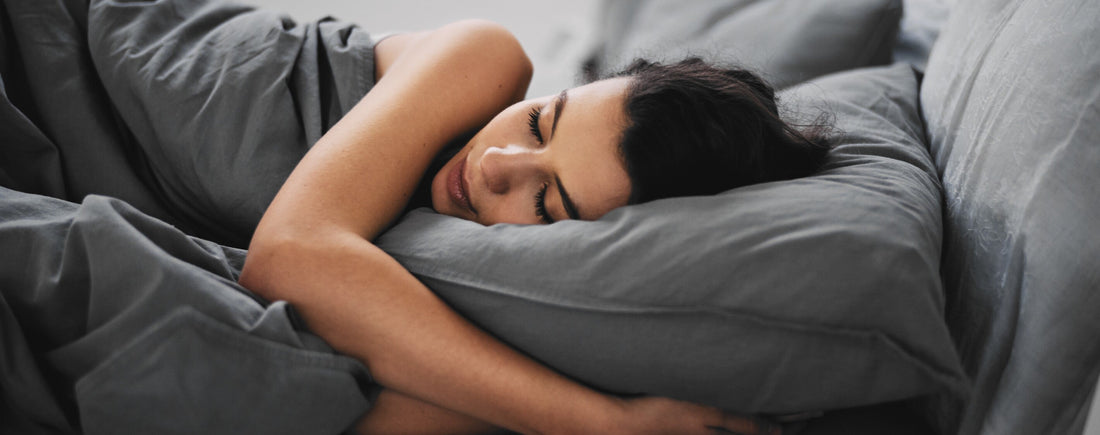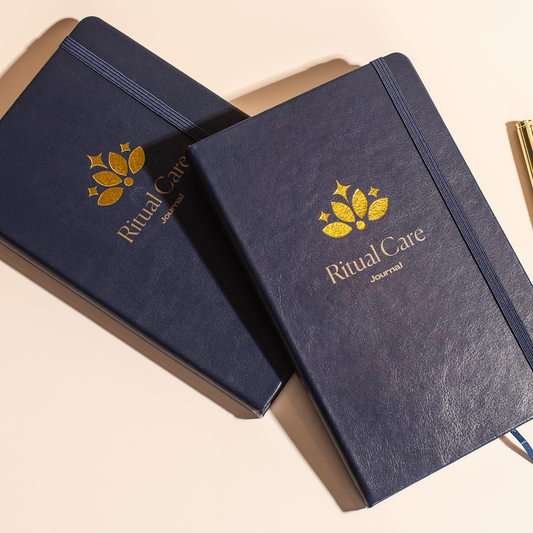This article was originally titled Cast Your Vote for Sleep as posted on October 28, 2020. Though the election went to bed, now it’s your turn. The issues raised in the article will continue to impact you and society at large.
Americans have been losing sleep over the U.S. election—we are anxiety-ridden about the results, the implications, and the future. With people so divided in ideology, schisms have created an incubator ripe for challenging restful sleep. Add to that the COVID-19 pandemic and societal unrest, which were already playing havoc with sleep for millions, and the results are clear: Sleep has been usurped by election fatigue.
While one person cannot control the election, each of us can control if we “elect” to sleep. Going forward one of the most important and impactful votes you can cast is for sleep, starting with your sleep. You have the power to choose to make sleep a priority. No one can sleep for you—you must make the choices that support your slumber.
It is a fact that we must sleep to live. When we don’t get sufficient sleep quality and quantity, our physical, mental, emotional, and immune health suffer, both short- and long-term. Our productivity, safety, and even spiritual well-being are hindered as well.
The benefits you reap from electing to sleep well not only support your health and well-being but how you sleep affects those around you and society at large. A vote for sleep is a vote for not only to enhance your life, but for your family, colleagues, community, country, and even for the global environment and the economy.
Initially, I thought sleep is not a political issue, but it turns out that sleep touches upon many issues that are integral to the election, and that impacts you and the community at large. One thing we have learned from this pandemic is that we are all connected. How you sleep has a ripple effect in ways about which you may not be aware.
The economics of sleep are well documented. Sleep deprivation is linked to lower productivity at work, which results in a significant amount of working days being lost each year and can impact not only your performance but that of your coworkers and the success of your employer. The toll of insufficient sleep for workers is significant. Unfortunately, some people cannot afford to sleep. Income inequalities can force people to have multiple jobs to provide for their families, often causing them to get inadequate sleep.
As for health care, the ramifications of insufficient, quality sleep on your personal health are abundant, from increased risk of cardiovascular disease, hypertension, depression, diabetes, obesity, and early-onset dementia. For the average adult, seven to nine hours of sleep are recommended each night. Chronic sleep deprivation or an untreated sleep disorder can intensify these risks. The old adage, “I’ll sleep when I’m dead,” is misleading. In fact, research confirms that chronic sleep deprivation may impair your longevity.
The COVID-19 pandemic has made the world’s human inhabitants hyper-attentive to the health of our immune system. Studies show that people who don't get quality sleep or enough sleep are more likely to get sick after being exposed to a virus, such as the common cold. Lack of sleep can also affect how fast you recover if you do get sick. Such research extends to the ramifications of this pandemic, which is already prompting the opportunity for a new body of research, including the impact of stress and anxiety on sleep.
Sleep empowers an effective immune system and prevention of disease, both physical and mental. Solid nightly rest strengthens our body’s defenses against disease and a growing body of research is showing that lack of sleep can make some vaccines less effective. In fact, not only does sufficient sleep in the week before your flu shot makes it more effective, explains sleep specialist Dr. Matt Walker: “Sleep will restock the weaponry in your immune system arsenal.”
Join Oprah Winfrey and Deepak Chopra for our 21-Day Meditation Experience: Creating Peace from the Inside Out, to learn how to resolve conflict in challenging relationships and connect with yourself.
The issues of the environment and climate change are front and center, for some a scientific reality and for others “fake news.” But whatever your perspective about the environment around you, you also have an internal environment: your body and brain, the healthy functioning of which is dependent on sufficient sleep quality and quantity. For example, if you’re on your phone or computer, have lights on, or are consuming food at 2 a.m., be it by choice or seeking a diversion when unable to sleep, you’re taxing your internal environment and depriving it of the rejuvenation and restoration it requires to function as designed. Another consideration is that you are consuming resources, be it food or energy, that would be at rest if you were.
As for sleep-related socioeconomic and racial inequities, so many of us are graced with a bed and a peaceful place to sleep. But far too many are not. Epidemiology professor Dayna Johnson, Ph.D., at Emory University has been “studying sleep disparities and sleep deficits for years, looking at how factors like neighborhood social cohesion and the built environment impact sleep. She’s found a strong relationship between the neighborhood environment and sleep. In unsafe, loud, and dense neighborhoods, everyone—regardless of race—tends to sleep poorly.”
Dr. Johnson is also studying the impact of the home environment on sleep disparities. Be it danger from neighborhood violence or no bed nor roof over a family’s head, having an environment conducive to sleeping well is a luxury many lack. We all need to recognize that a good night’s sleep is a human right and consider the democratization of sleep as a societal priority.
Ironically, millions who do have the blessing of a place to sleep and a bedroom furnished with a bed still struggle with getting the sound, restorative sleep they need. In fact, technology is often at the crux of sleep-depriving culprits. Society continues to be exposed to a barrage of information, noise, and distraction emanating from our cell phones, computers, and TVs right into our beds. We need to tune out from technology at least an hour before bedtime to minimize brain stimulation as well as to allow our circadian rhythm to do its thing which is inhibited by the blue light released from tech devices. Ample tune-out time allows us to set the stage for sound sleep.
And, last but not least, is an election issue which has caused great consternation, anguish, and divisiveness: kindness, consideration, leadership, and respect for your fellow human beings. Our mood and the state of our mental health can have a direct impact on our relationships and can be directly impacted by our sleep or the lack thereof.
The issue of sleep-deprived politicians is one that spans decades. Research has shown that important decisions are often made by leaders whose severe sleep deprivation leaves them cognitively impaired, not to mention displaying compromised communication skills. Sleep-deprived politicians notwithstanding, each of us has an opportunity to support those things we care about by getting good sleep. Our decision-making and our cognitive abilities are also directly impacted by the sleep we get or not.
.
And though the political environment may remain intense and provocative even after the election is put to bed, the science of sleep is clear. It does not cater to politics. Sleep is essential for life, regardless of your political leanings or your beliefs. Each of us is designed to sleep. Sleep does not take sides and does not have an ideology, nor a platform from which to alienate people. You can choose to make sleep a priority with behavioral and sleep environment modifications to best support good sleep. The good news is that each of us can take charge of our sleep, improving not only our own lives but positively impacting society at large. One election result is already definitive: The vote for sleep is: Yes! You win when you get good sleep.
There are three ways in particular that you can work to be aware of your sleep needs and actively work to improve your sleep practices.
Sleep tight!
*Editor’s Note: The information in this article is intended for your educational use only and is not a substitute for professional medical advice, diagnosis, or treatment. Always seek the advice of your physician or other qualified health providers with any questions you may have regarding a medical condition and before undertaking any diet, supplement, fitness, or other health programs.
Americans have been losing sleep over the U.S. election—we are anxiety-ridden about the results, the implications, and the future. With people so divided in ideology, schisms have created an incubator ripe for challenging restful sleep. Add to that the COVID-19 pandemic and societal unrest, which were already playing havoc with sleep for millions, and the results are clear: Sleep has been usurped by election fatigue.
While one person cannot control the election, each of us can control if we “elect” to sleep. Going forward one of the most important and impactful votes you can cast is for sleep, starting with your sleep. You have the power to choose to make sleep a priority. No one can sleep for you—you must make the choices that support your slumber.
Broad Benefits of Sleep
It is a fact that we must sleep to live. When we don’t get sufficient sleep quality and quantity, our physical, mental, emotional, and immune health suffer, both short- and long-term. Our productivity, safety, and even spiritual well-being are hindered as well.
The benefits you reap from electing to sleep well not only support your health and well-being but how you sleep affects those around you and society at large. A vote for sleep is a vote for not only to enhance your life, but for your family, colleagues, community, country, and even for the global environment and the economy.
Initially, I thought sleep is not a political issue, but it turns out that sleep touches upon many issues that are integral to the election, and that impacts you and the community at large. One thing we have learned from this pandemic is that we are all connected. How you sleep has a ripple effect in ways about which you may not be aware.
Economics of Sleep
The economics of sleep are well documented. Sleep deprivation is linked to lower productivity at work, which results in a significant amount of working days being lost each year and can impact not only your performance but that of your coworkers and the success of your employer. The toll of insufficient sleep for workers is significant. Unfortunately, some people cannot afford to sleep. Income inequalities can force people to have multiple jobs to provide for their families, often causing them to get inadequate sleep.
Sleep and Your Health
As for health care, the ramifications of insufficient, quality sleep on your personal health are abundant, from increased risk of cardiovascular disease, hypertension, depression, diabetes, obesity, and early-onset dementia. For the average adult, seven to nine hours of sleep are recommended each night. Chronic sleep deprivation or an untreated sleep disorder can intensify these risks. The old adage, “I’ll sleep when I’m dead,” is misleading. In fact, research confirms that chronic sleep deprivation may impair your longevity.
The COVID-19 pandemic has made the world’s human inhabitants hyper-attentive to the health of our immune system. Studies show that people who don't get quality sleep or enough sleep are more likely to get sick after being exposed to a virus, such as the common cold. Lack of sleep can also affect how fast you recover if you do get sick. Such research extends to the ramifications of this pandemic, which is already prompting the opportunity for a new body of research, including the impact of stress and anxiety on sleep.
Sleep empowers an effective immune system and prevention of disease, both physical and mental. Solid nightly rest strengthens our body’s defenses against disease and a growing body of research is showing that lack of sleep can make some vaccines less effective. In fact, not only does sufficient sleep in the week before your flu shot makes it more effective, explains sleep specialist Dr. Matt Walker: “Sleep will restock the weaponry in your immune system arsenal.”
Join Oprah Winfrey and Deepak Chopra for our 21-Day Meditation Experience: Creating Peace from the Inside Out, to learn how to resolve conflict in challenging relationships and connect with yourself.
Sleep and Your Internal Environment
The issues of the environment and climate change are front and center, for some a scientific reality and for others “fake news.” But whatever your perspective about the environment around you, you also have an internal environment: your body and brain, the healthy functioning of which is dependent on sufficient sleep quality and quantity. For example, if you’re on your phone or computer, have lights on, or are consuming food at 2 a.m., be it by choice or seeking a diversion when unable to sleep, you’re taxing your internal environment and depriving it of the rejuvenation and restoration it requires to function as designed. Another consideration is that you are consuming resources, be it food or energy, that would be at rest if you were.
Sleep and Your Community
As for sleep-related socioeconomic and racial inequities, so many of us are graced with a bed and a peaceful place to sleep. But far too many are not. Epidemiology professor Dayna Johnson, Ph.D., at Emory University has been “studying sleep disparities and sleep deficits for years, looking at how factors like neighborhood social cohesion and the built environment impact sleep. She’s found a strong relationship between the neighborhood environment and sleep. In unsafe, loud, and dense neighborhoods, everyone—regardless of race—tends to sleep poorly.”
Dr. Johnson is also studying the impact of the home environment on sleep disparities. Be it danger from neighborhood violence or no bed nor roof over a family’s head, having an environment conducive to sleeping well is a luxury many lack. We all need to recognize that a good night’s sleep is a human right and consider the democratization of sleep as a societal priority.
Sleep and Technology
Ironically, millions who do have the blessing of a place to sleep and a bedroom furnished with a bed still struggle with getting the sound, restorative sleep they need. In fact, technology is often at the crux of sleep-depriving culprits. Society continues to be exposed to a barrage of information, noise, and distraction emanating from our cell phones, computers, and TVs right into our beds. We need to tune out from technology at least an hour before bedtime to minimize brain stimulation as well as to allow our circadian rhythm to do its thing which is inhibited by the blue light released from tech devices. Ample tune-out time allows us to set the stage for sound sleep.
Sleep and Mental Health
And, last but not least, is an election issue which has caused great consternation, anguish, and divisiveness: kindness, consideration, leadership, and respect for your fellow human beings. Our mood and the state of our mental health can have a direct impact on our relationships and can be directly impacted by our sleep or the lack thereof.
The issue of sleep-deprived politicians is one that spans decades. Research has shown that important decisions are often made by leaders whose severe sleep deprivation leaves them cognitively impaired, not to mention displaying compromised communication skills. Sleep-deprived politicians notwithstanding, each of us has an opportunity to support those things we care about by getting good sleep. Our decision-making and our cognitive abilities are also directly impacted by the sleep we get or not.
.
And though the political environment may remain intense and provocative even after the election is put to bed, the science of sleep is clear. It does not cater to politics. Sleep is essential for life, regardless of your political leanings or your beliefs. Each of us is designed to sleep. Sleep does not take sides and does not have an ideology, nor a platform from which to alienate people. You can choose to make sleep a priority with behavioral and sleep environment modifications to best support good sleep. The good news is that each of us can take charge of our sleep, improving not only our own lives but positively impacting society at large. One election result is already definitive: The vote for sleep is: Yes! You win when you get good sleep.
3 Resources to Help You Sleep and Live Well
There are three ways in particular that you can work to be aware of your sleep needs and actively work to improve your sleep practices.
- Chopra Global has a wealth of master classes available on its website. Engage in a variety of self-care strategies, information, and tools to improve your life 24/7.
- Download the new Chopra App, one of the best I’ve ever used. The Balanced Body “Better Sleep” section offers programming, meditations, mantras, and sounds that empower you to sleep well. The App also has simple meditation techniques, including “quick fixes” to manage difficult emotions.
- Take my half-hour Sleep Is Your Superpower course on LinkedIn Learning to support your sleep improvement journey.
Sleep tight!
*Editor’s Note: The information in this article is intended for your educational use only and is not a substitute for professional medical advice, diagnosis, or treatment. Always seek the advice of your physician or other qualified health providers with any questions you may have regarding a medical condition and before undertaking any diet, supplement, fitness, or other health programs.






















